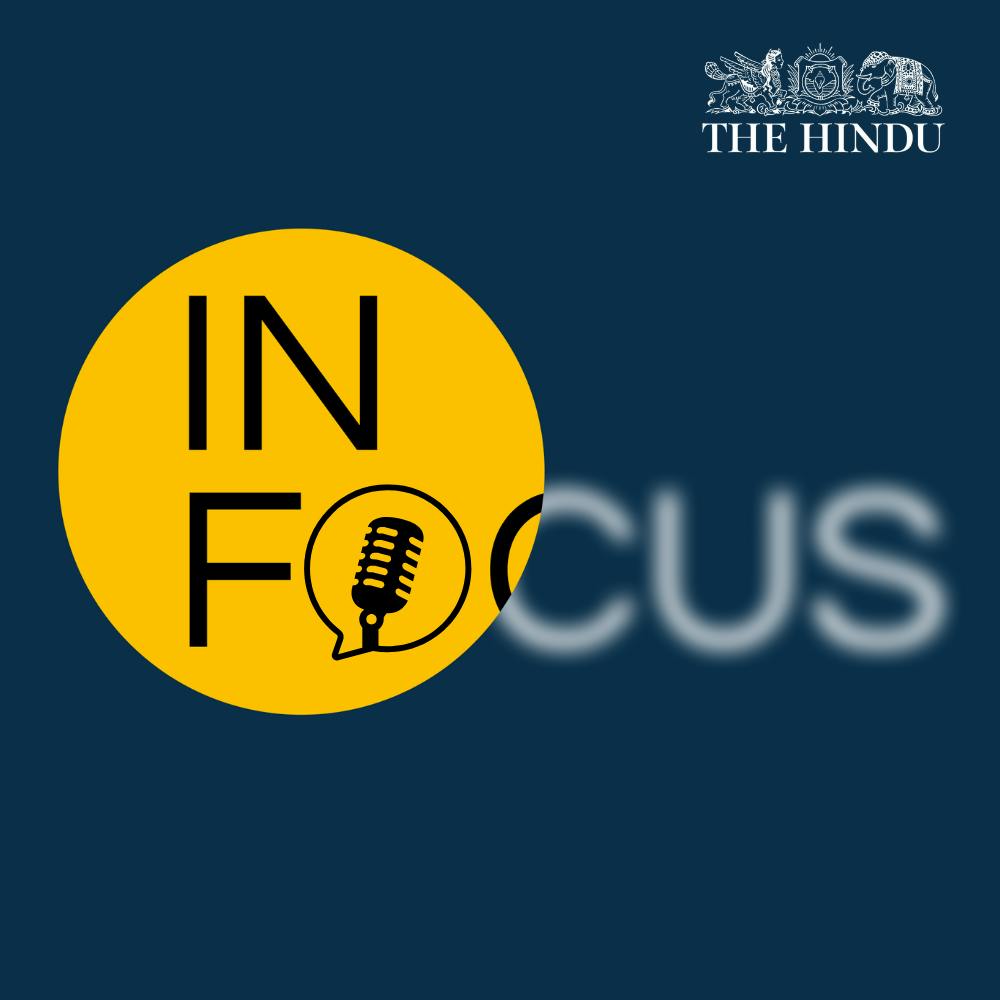

In Focus by The Hindu
The Hindu
A podcast from The Hindu that delves deep into current developments with subject experts, and brings in context, history, perspective and analysis.
Episodes
Mentioned books

Jan 31, 2026 • 31min
Reading between the lines of Economic Survey 2025–26
Trishna Sarkar, Assistant Professor of Economics at Dr BR Ambedkar College, offers academic analysis of the Economic Survey. She unpacks reform metaphors and cautions on matching urgency with institutional capacity. She discusses manufacturing’s missing middle, skill and MSME gaps, strategic self-reliance, and the idea of an entrepreneurial state. The conversation ends with a call to focus on capability-driven development.

7 snips
Jan 30, 2026 • 28min
What would India's markets and small businesses expect from Union Budget 2026?
Lalatendu Mishra, a Mumbai-based markets and RBI analyst, and Soundariya Preetha, a Coimbatore-based MSME reporter, discuss pre-Budget expectations. They cover the Economic Survey's tone versus MSME realities. They examine cluster-level fixes, FTAs and textiles, import barriers like QCOs, FII outflows, RBI tools and calls for growth-focused tax moves.

Jan 29, 2026 • 32min
In Focus-Parley | Will removing curbs on Chinese FDI help India?
Santosh Pai, legal and economic expert on FDI screening. Shyam Saran, former foreign secretary with deep strategic insight. They debate whether easing Chinese investment curbs could boost manufacturing, integrate supply chains, and spur exports. They weigh national security, sectoral red lines, and what India must fix to attract sustainable Chinese investment.

Jan 28, 2026 • 23min
ICC T20 World Cup: Why was Bangladesh replaced by Scotland?
Amol Karhadkar, sports journalist from The Hindu’s Sports Bureau, unpacks the saga behind Bangladesh being replaced by Scotland at the T20 World Cup. He traces the timeline from an IPL player release to BCB security demands. He discusses ICC security reviews, logistical pressures, BCCI authority over contracts, questions of fairness and shifting cricket diplomacy.

Jan 27, 2026 • 39min
Should India join Trump’s Board of Peace?
Stanly Johny, International Affairs Editor at The Hindu, outlines the controversy around Trump’s proposed Board of Peace and its origins from a UN resolution. He examines membership rules, potential for a US-led parallel to the UN, which countries have accepted or declined, and why India might prefer strengthening multilateral institutions over joining now.

Jan 26, 2026 • 28min
Decoding SC’s ruling on Tiger Global’s tax ruling
Vinod Joseph, partner at Economic Laws Practice who advises on investment structuring and cross-border tax, explains the Supreme Court ruling on Tiger Global’s Flipkart sale. He traces the dispute timeline and why the court prioritized substance over form. He discusses how GAAR interacts with tax treaties, likely shifts in investor jurisdiction choices, and broader effects on private equity and startup funding.

Jan 24, 2026 • 49min
In Focus-Weekend | Talking entrepreneurship with ‘Ground Breaker’ Kanwal Rekhi
Kanwal Rekhi, an Indo-American entrepreneur and venture capitalist who founded a Nasdaq‑listed tech company and helped start TiE. He recalls arriving in 1960s America, breaking barriers in Silicon Valley, and the early risks of founding a startup. He discusses choosing cofounders, avoiding distraction, mentoring styles, and how policy and capital shape entrepreneurship today.

Jan 22, 2026 • 37min
What Canada PM Mark Carney said: Official obituary of the rules-based global order?
Suhasini Haider, the Diplomatic Affairs Editor at The Hindu, dives deep into Canadian PM Mark Carney's bold rhetoric at Davos, where he declared the demise of the rules-based global order. She discusses how Carney's acknowledgment of this selective application has resonated globally and questions its implications for countries like India. Haider examines sovereignty's new definition as resilience against big powers, the role of middle nations, and the potential shifts in NATO dynamics. Her insights challenge listeners to rethink international relations in today’s geopolitical landscape.

Jan 22, 2026 • 35min
In Focus-Parley | Does Trump's Greenland plan signal the end of NATO?
C. Raja Mohan, a noted journalist and foreign policy analyst, teams up with T.G. Suresh, an expert in geopolitics, to delve into the implications of Trump's push for Greenland. They explore how this move tests NATO's solidarity and Article Five, highlighting the strategic significance of Arctic shipping routes and resources. Discussions reveal the chilling effects on NATO allies and raise questions about U.S. military intentions in the region. With rising competition from Russia and China, both guests analyze the future of NATO under pressure from Trump's demands.

Jan 21, 2026 • 38min
What can an ‘autistic’ Barbie represent when neurodivergence has no single look?
In this engaging discussion, Dr. Nidhi Singhal, Director of Research and Training at Action for Autism, explores the significance of the new ‘autistic’ Barbie. She highlights how this doll, designed with unique features, fosters acceptance and representation for autistic children. Nidhi explains the importance of collaboration with self-advocates and how sensory tools can enhance comfort. She emphasizes the need for ongoing dialogue and policies that support inclusion in India, urging companies to celebrate neurodiversity as part of everyday life.


